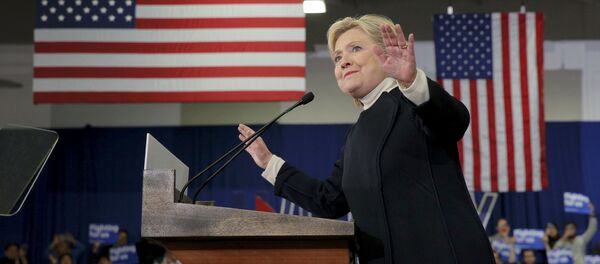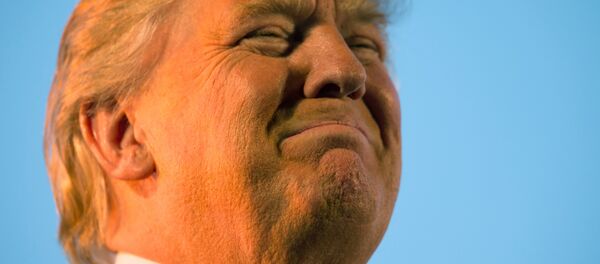The US' Middle Eastern foreign policy remains its Achilles' heel: under President Barack Obama Washington has got bogged down in the region, Geoffrey Wheatcroft, an English journalist and author, notes.
In his opinion piece for The National Interest Wheatcroft cites Philip Gordon, Obama's former special assistant and coordinator for the Middle East:
"In Iraq, the US intervened and occupied, and the result was a costly disaster. In Libya, the US intervened and did not occupy, and the result was a costly disaster. In Syria, the US neither intervened nor occupied, and the result is a costly disaster."
Remarkably, Republican presidential nominee Donald Trump shares a similar stance: in his latest statement Trump accused Barack Obama and Hillary Clinton of destabilizing the Middle East and betraying the US' national security.
"Well, he's a terrible president. He'll probably go down as the worst president in the history of our country, he's been a total disaster," Trump said in reference to Obama and his Middle Eastern foreign policy.
Wheatcroft calls attention to the fact that currently the US has neither benevolent political actors, nor true friends in the Middle East.
"If the unilateral intervention of the previous administration was a total failure, and if the alternative policies followed under Obama have been met with very limited success, might it not be time to fundamentally to reassess the American role as a would-be but not very successful global superpower?" the English writer asks.
US conservative commentator Patrick J. Buchanan echoes Wheatcroft in his Tuesday article for the American Conservative.
"Behind the war guarantees America has issued to scores of nations in Europe, the Mideast and Asia since 1949, the bedrock of public support that existed during the Cold War has crumbled," he writes.
In this context Obama's "red line" in Syria has become a sort of litmus test: back in 2013 when the US President claimed that his "red line" against the use of chemical weapons in Syria had been allegedly crossed, he found out that "he had no public backing for air and missile strikes on the Assad regime."
"We have been at war since 2001. And as one looks at the ruins of Afghanistan, Iraq, Syria, Libya and Yemen, and adds up the thousands dead and wounded and trillions sunk and lost, can anyone say our War Party has served us well?" Buchanan asks.
But what is even more astonishing, the commentator notes, is the non-reaction of Middle America.
"Americans seem neither shocked nor horrified [by Trump's remarks]," he underscores.
Americans are leaning toward Donald Trump's "isolationism" because the US policy of "interventionism" has been proven ineffective.
"Might it not be time to ask whether it's possible for the United States even to have a rational foreign policy?" Wheatcroft asks.




